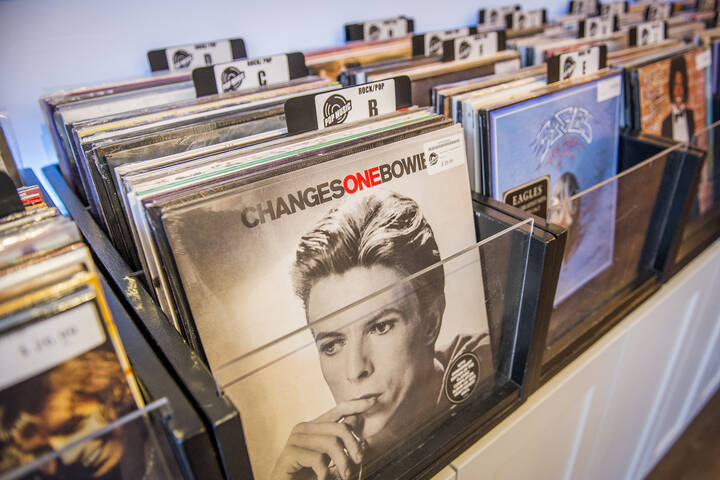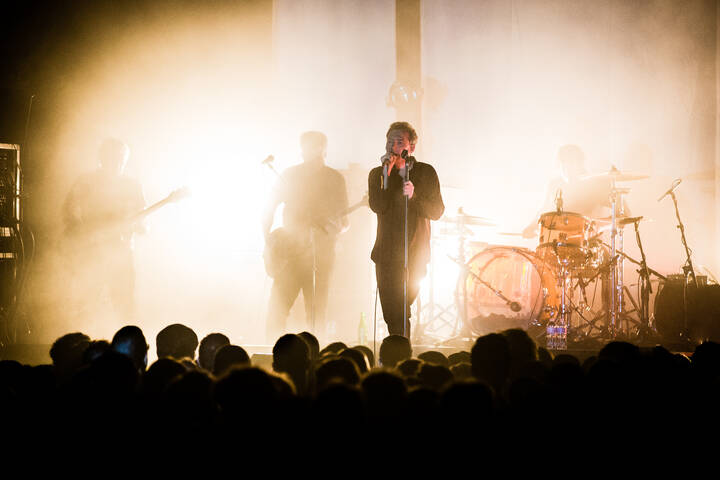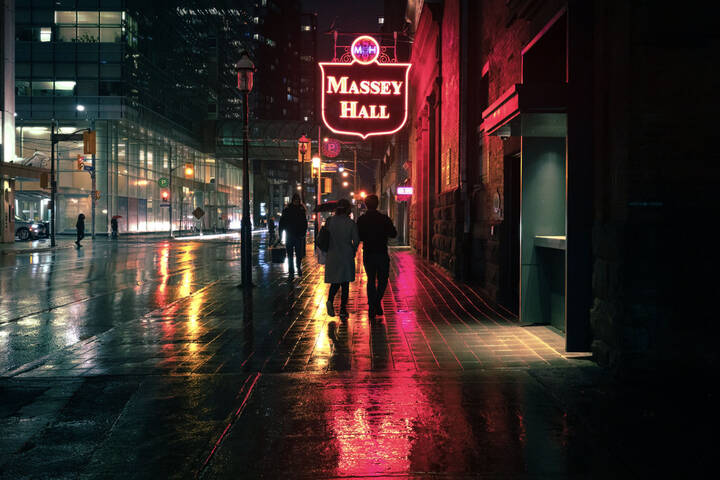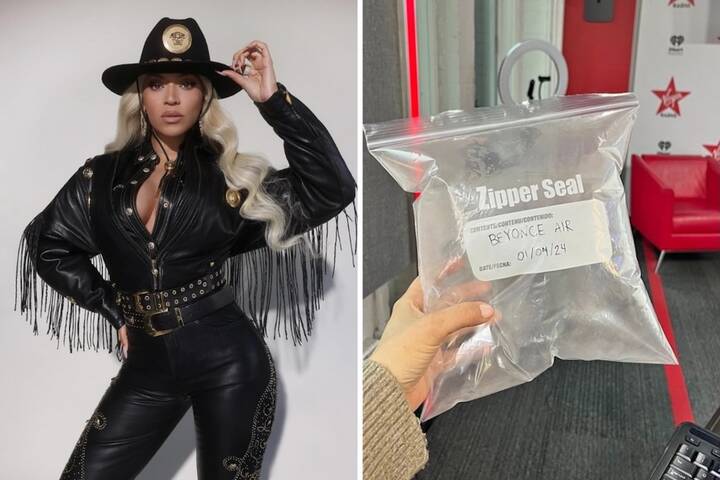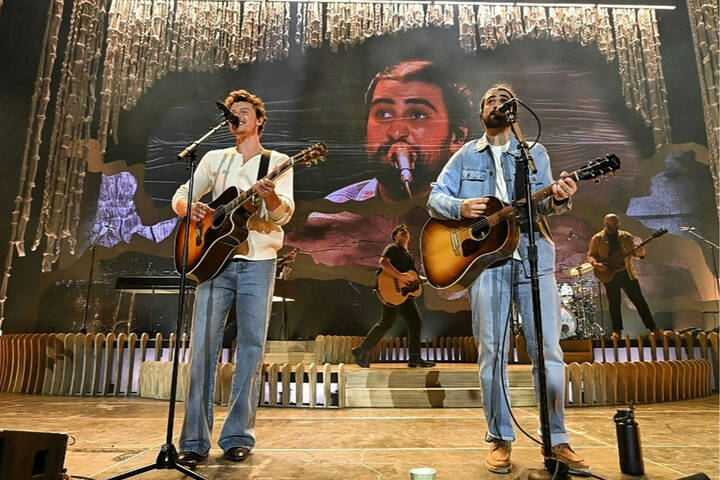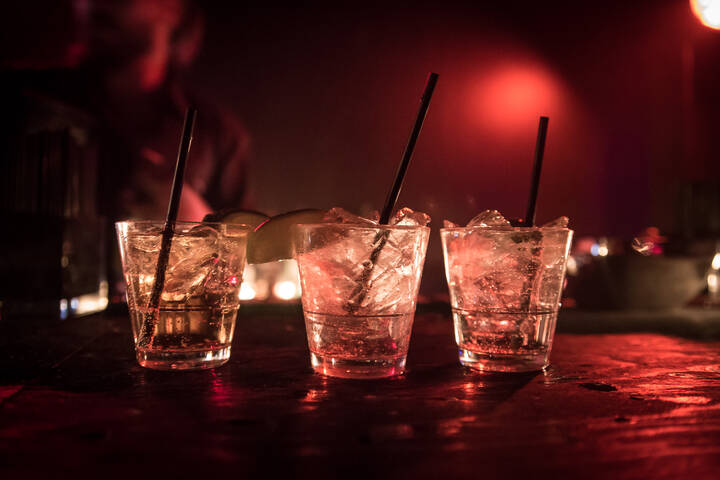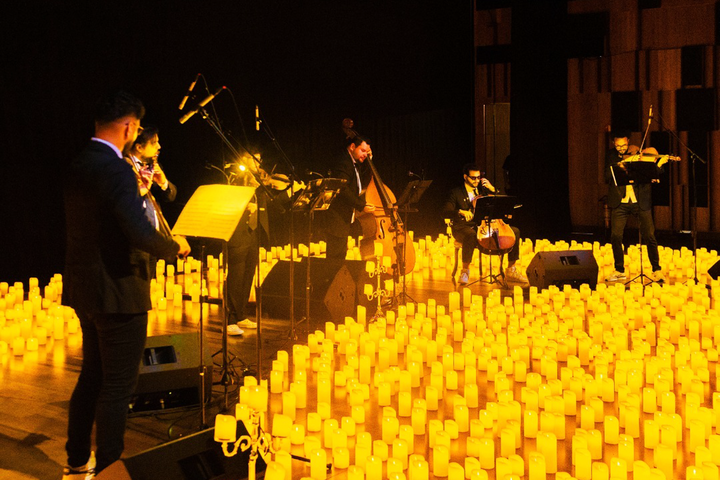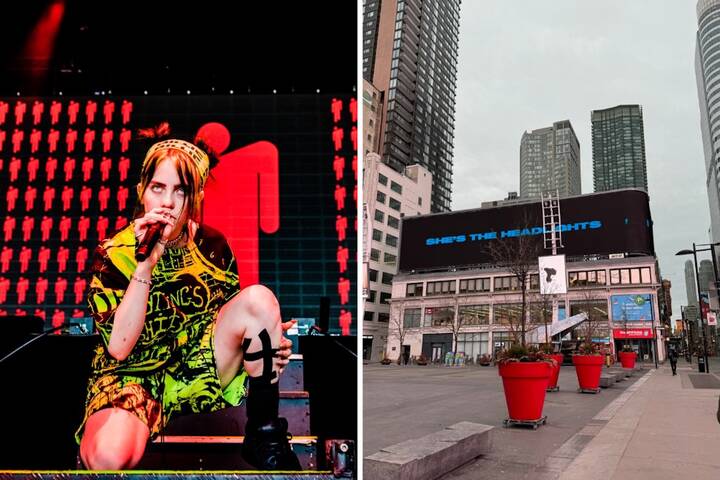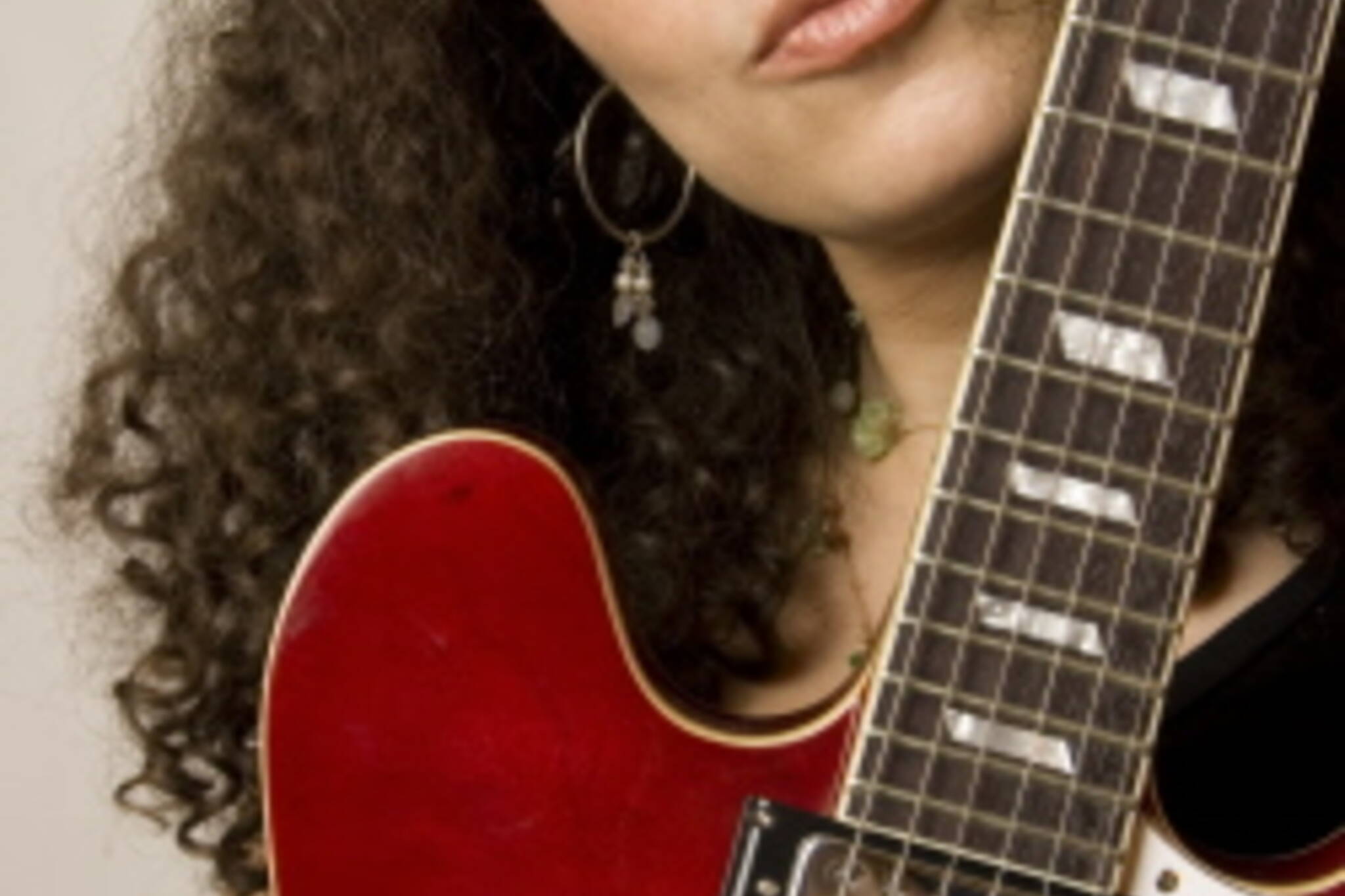
GreenTaRA Takes it Global, Baby!
Vancouver's GreenTaRA (aka Tara Donald) has been told she's a "talkaholic". What you're about to read is just a small portion of the hour plus conversation I had with the amiable genre-defying artist.
It's fitting that she named her latest effort Global Baby because she's seemingly lived in every continent at some point in her life. The disc's 13 tracks encompass her multi-cultural background with sounds that vary from jazz to funk and R 'n B with a strong Hip-Hop influence.
GT took some time out of her Thanksgiving holiday to speak with me.
Q: Tell blogTO's readers a bit about yourself.
GT: I was born here in Vancouver, born and raised and then I took off and traveled the world when I was a teenager, I think it was shortly after my nineteenth birthday I was like, "Gotta get out of here!"
I went down to Australia for a while and New Zealand and came back from there and decided I wanted to live in warm places so I ended up moving to Florida. Moved down there for a while, toured for about five years in a band down there and decided actually shortly after, I think it was after the Clinton administration bombed Afghanistan and destroyed the pharmaceutical plant there that was supplying Africa with pharmaceuticals and I was like, "Wait a minute! I don't want to be here!"
--
I decided I was going to move back to Canada, which I did. I set out a few missions for myself, making new albums, singing, I wanted to sing in an acid jazz band at the time, which was what I did. And then wanted to learn to snowboard. You know, all the regular things. (Laughs) And I wanted to somehow connect with my biological parents, because I'm adopted. So I actually did all of those things in the following years after moving back to Vancouver and part of that whole being an adopted kid and trying to imagine about your parents. I used to imagine Bob Marley was my dad, things like that, because I was adopted into a mixed-race marriage.
My dad was from Trinidad and my mom had Scottish ancestry and when they married they adopted kids and they said, "We want mixed race kids because our marriage is mixed."
Eventually my biological parents actually found me. I sort of gave up on that one, I was sort of like, "Eh, I don't really have the energy to do that one." And then I get a letter from my biological mother.
Well, it turns out genes are pretty strong because as it turns out, my biological mother was a singer and played in bands and stuff like that and plays guitar and comes from a long line of classical and jazz musicians and then my biological father is an artist, painter and sculptor and it's kind of funny because those are the things that I've migrated to, like the creative elements.
Q: How did you end up getting into music?
GT: I just happened into music. What happened was I played piano as a kid and of course, like all kids, well, not all kids, but all the kids that I knew begged my parents not to make me take piano lessons anymore.
So, finally my mom gave in but then that was when I was like 10 or 12 I probably quit. Then when I was 15 I sort of found this guitar in the basement of my house and I just taught myself how do it and I remember when I was about 15 or 16 I just learned a few chords, taught myself a few chords, whoever I knew that knew music, they'd teach me a couple of things and then I was sitting on my back porch and I was playing a song I wrote, all these three chord wonder songs that you need three chords to write a song.
I was sitting playing this song and this woman came into the backyard of my parent's house, I was in high school just singing a song to myself, singing away, and she comes out of the alley, she was walking her dog or something, and she comes out of the alley into the backyard of my parent's house and she's like just standing there like listening.
I finished my song and she's like, "Hey kid, whatever you do, keep doing that. Because you've gotta keep doing whatever you're doing."
The next thing that told me I had to keep doing music was I was singing in Australia, I doing some (singing) just at a friend's house at a friend's party playing some music and singing some songs.
I was singing this song and then a month later I was sitting on the boardwalk on the beach and some girl who happened to be at the party was singing my song! Like singing the hook to my song as she walked by and I was like, "Hey!" And she was like "Hey! Yeah! Your song's been stuck in my head ever since I heard it!"
When I was in university I was studying ethnomusicology. That's always just fascinated me like what people think about music. Not just what music is itself, and the tones and the sounds and the notes and the charts, but more like how people perceive music has always totally fascinated me.
So, It's almost like my life is this big ethno musicological experiment! I often refer to my work as my research! When I'm out there on tour it's like, "Ah! I'm collecting field research for my life's work!"
And I've also always considered music a life style. Not so much ... it's not like I woke up one day and was like, "Hey! I'm going to be a singer! Hey! I think I'm going to write songs and be a musician."
I never actually though about it in those concrete analytical terms. It was always just like that I knew that when I sang and made ... if I don't do it, I get depressed. I always just did! As soon as I started writing, the songs just started coming out and the music just started coming out so it's almost like you don't have a choice when you're (writing music).
Q: What was being named the Best of Fest at the Austin Women's Film, Music and Literary Festival like?
GT: That was a trip! That was amazing! Because I wasn't really expecting anything. And once again, I didn't go into it thinking, "Oh! I hope I win Best of the Fest!"
I applied. What happened was I used this application device online called Sonicbids. A lot of artists use it.
You read through it and this particular, this Austin Women's Film, Music and Literary Festival, but they also call it Blowin' Up a Spot is the nickname of the festival. They had this call for submissions and they said the festival was for all women but specifically designed to showcase African-American, Latina, Asian, Aboriginal or Native American women, you know in the States they say Native American and da-da-da!
I'm reading this and I'm like, "That's me!" And so I was reading it and I read this thing and I was like, "Oh that's me! They are looking for me!"
I sent in my application and I remember reading a line at the bottom that said; "Applicants will be considered for Best of the Fest. And I was like, "Oh that's cool!" and I sent it off and then they did the announcement of the people who were accepted and I was like, "Oh great! I'm in the festival!" And then it had six nominees for finalists of "Best of the Fest" and I was in the finalists and I was like, "Oh my god! Oh wow! I'm in the finals too! Wow that's great!"
I started to get excited about it because I thought it was such an honour to be considered the best out of I think there was something like 60 applicants from all over the world. Predominantly, I think, over 65 or something like that and they were predominantly in the US but there was applications from South America and Europe and I think I was the only Canadian in the festival.
I just thought, "Oh what an honour to be nominated because I'm one of those people that tends to look at the ... I'm an optimist essentially so I'm like, "Oh yay! I got nominated! What a success! If I win, even better! But a nomination is outstanding for me; I consider that such an honour. I was just so happy to be nominated. Then the Best of the Fest announcement came out and it said, "The winner is GreenTaRA!" And I was just like, "Oh wow!" I couldn't believe it because I wasn't waiting around hoping that I was gonna be Best of the Fest. But at the same time to be chosen for that, I don't know what to say other than it was such an honour and when I talked to the festival director, she called me and just asked me why did you apply and I told her a lot of what I just told you and she said, "Yeah, that's why we picked you is because we felt that you would represent what the festival is about. And that's about showcasing woman and showcasing diversity."
And also because I have woman in my band as well.
It was great. Best of the Fest it was a total honour. It was amazing because basically I was like, "Oh, I'm Best of the Fest!" And then I was like, "Oh! we gotta promote this!" Because I'm a businesswoman too! So I started sending out ... I got the names of all these Austin, Texas press people and I sent out press releases out to Austin and CDs and just sent out whatever I could to whoever I could to try to get a little bit of press.
We got some press and I think that's one of other reasons I was chosen as Best of The Fest because I had a vibe that I was gonna make the most of it, I think a lot of artists tend to expect something like I expect to get a deal and have people do the legwork for me when the reality is that's just not how it goes.
Q: You've played an incredibly diverse range of music festivals. Which one stood out and why?
GT: One what my absolute favourites was Fete De La Musique in Berlin was a great one because I got to play at his amazing jazz club, Quasimodo Jazz Club in Berlin.
I got there and you're looking around and this is where Ella Fitzgerald and Dizzie Gillespie and Oscar Peterson and all the greats played when they came to Berlin. We're talking end of war era and this is where all the jazz players were playing in the club and it was just like history and I just felt so honoured to be on the stage.
And the really amazing thing is I applied for this festival and I get this letter in the mail and I'm reading it and I'm like, "This is in German! I don't understand I don't understand what it says!"
So I started calling up friends and I was like, "Do you speak German? Do you speak German?"
(Laughs) It took me three days to find someone! Who could read my acceptance letter. And I was thinking it looks positive because you know how you read German and it almost sounds like English but not quite so I was trying to read it out loud like it was English and I was like, "I think it's an acceptance letter but I'm not sure. So it was just hysterical, I was running around town. In the end my cousin who speaks a little German ended up putting it into an internet translation program, I didn't even know they had that! And it was all disjointed, it doesn't do very good translations.
But I did get the jist of it that we're happy to welcome you to the festival kind of thing.
So that was excellent, that was just great and as luck would have it I happened to do the infamous "Tara pulling a band out of her hat" trick. It's a free festival, it's like the people's festival so I couldn't really afford to fly my band out there. But I happened to get in touch with a drummer that I knew from when I was living in Australia and he was a German guy and I just e-mailed out all the German people that I had met in my travels, like 30 or 40 German people I had met over the past decade.
Another great one, of course, was the United Nations because I had just seen something on the internet and I'm like, "Oh, I'm gonna send 'em a CD." So I sent them my CD and (was invited to play).
Q: What set the recording of this album apart from the last one? Your previous effort was self-produced but you had a producer helping you out on this one. What was that like?
GT: It was really cool because, well, with this album I specifically wanted to work with a producer because my last album I had worked with producers before with the band albums as opposed to GreenTaRA as a solo album. But I, having produced my last album, really want to up the production quality to take it away from that lo-fi sound, you know? I don't know how to explain. I had never worked with a producer in such depth before so that was one of my goals.
Because I got the grant, the FACTOR grant to record this album, actually the independent recording loan from FACTOR, I had a chunk of money that I could work with so I could actually pay people what the industry standard or nice sum of money to do the album.
Because my last album I did for a thousand bucks and everybody performed for free. And you can't really ask people to nail stuff out over and over in the studio for free right? You come, you get what you get and you put it together, you print it and you've got your product. But this, we spent like a year working on this record so just in the studio, not even including the songwriting! One of the songs I wrote 10 years prior to recording it.
That's 'Who' , I wrote that one in New Orleans in '96. So after Hurricane Katrina, I have to record 'Who'. Just because it was so timely and it's nice to put an oldie on the album if it fits with the whole sound.
But working with the producer was amazing because every artist is their own worst critic. So I would say, "Oh that's terrible! I can't believe that take is so awful! I can't believe that's so uncanny and strange!" And the producer would say, "Are you kidding? This is the most interesting and unique thing! Use this one! This is the one I would pick!" And I'm like, "You would pick that one?! That's so weird! I would never picked that one and I would have never picked that take." But then a lot of the time I was like, "OK! Well, if you think it's good I think it's good."
It's good to have that other ear that's saying, "This is different, this is unique." Or, "This brings out a nice part of your voice."
I'm used to live performance as well so I get there and I'm singing! I'm singing at the live show and he just said, "Tara, just chill out a little bit, relax a little bit. Sing from a different place, try it from a different place as opposed to belting it out right now."
So then I'd try it a different way and the interesting thing is we got some really, really interesting takes that were really chill and laid back and it helped to give the record a bit more of laid back, easy kind of feel as opposed always super aggressive in your face! kind of singing.
(Laughs) Which is like I've had some opera training so I tend to be like "Ahh!" (Imitates an opera singer) Some times I get a little intense with it and he was like, "Chill out, have some fun with it." And helped to relax me a lot rather than thinking that every take had to be the take! He gave me some really good advice. Scott Sanft is the producer and he said to me, "You know Tara, this is just one representation of what you happen to do in the studio that day. And it's not the end all and be all and the only way you'll ever sing it." It's just one representation of what you can do."
And he said that was some advice that he got when he was starting to record for example and I've been recording for 10 years or more but it helped me to step away from it and rather than having to be a perfectionist all the time and do everything perfectly, I felt like having a producer helped to give me a little more freedom to experiment, and experiment so we could create a different feel for each song on the album and also he was really instrumental in some of the horn arrangement. He was just brilliant with the horn arrangements and the string arrangements.
I would have never been able to do that on my own.
For me, working with a producer helped me in a lot of ways because for number one it helped me to relax and ease into the record because I knew that I could just be the singer or the songwriter or the guitar player and I didn't have to worry about everything was all fitting together because I knew someone was looking out for that.
Second of all it basically helped me with humility as well, as well as being able to let go. Because I think as a songwriter, you feel so attached to what you've created, often you want it to be exactly as how you envisioned it.
Whereas the producer has such an impact on what your sound is going to be like in the end. Some times it helps me to just let go and say, "OK, let's try it that way," and not have to always be in control of what was happening at all times because I'm an independent artist. I'm used to being a control freak like most album people, like most artists but this way it taught me how to let go and put it in someone else's hand and that it would be alright.
Q: Social awareness seems to be a rarity in R 'n B. Do you find you have trouble connecting with an R 'n B audience?
GT: I think in terms of pop R 'n B it's not really present. But I think the origins of R 'n B like gospel music and spirituals and blues and the music that birthed what we would call R 'n B music, I think that the ancestors of contemporary music are really packed with meaning and spirituality and social awareness.
I think it depends, I think if you talk about mainstream, commercial pop music R 'n B then I'm not really expecting my album to get picked up by commercial radio. It would be great if it does and maybe it will be or maybe a few tracks or singles will be.
But I do make my music for the people who listen to it, not for coporations or, hey, if the corporations are going to give me money I'm not an idiot! I'll take it! But if it's the right corporation of course.
But I'm not going to sponsor my album through Shell!
I don't really find I have a problem connecting with my audiences. And I think a lot people are really sick of all the crap they hear. There's nothing like a love song right? And there's a few love songs on the record, but there's nothing like a beautiful love ballad in terms of R 'n B. But I wouldn't say my stuff's like that super commercial R 'n B.
But I find that people who listen to that actually like my music because I think the issue is not so much the music itself but more like the marketing.
You could take pretty much any album, whether it's good or bad, and if you spend half a million dollars on marketing, it's going to be a hit!
Like seriously, there's so many bad artists out there that are making ridiculous amounts of money. It's a money game right? So, maybe because I live for experience rather that fame. If I had the choice to spend five thousand dollars on marketing or touring, I'd spend it on touring because I'm connecting with the people and not connecting with people through a magazine.
I think in the underground, if there even is an underground, there is an underground but I think that underground, the people in the know, the people on MySpace who are looking for that stuff, the people who are looking for stuff that's not your major label classic commercial crap, and I don't have to say that there is some very excellent music in the commercial genres as well, it's not all crap! There are some great artists out there that are getting the recognition that they deserve.
But I think people will find it so I don't think about it and here comes that optimist thing, I don't think about it as a problem, never really have thought about it as a problem.
Q: What do you have planned for your show at The Cameron House tonight?
GT: My CD release party gonna be a great show, we're doing it at Cameron House. And I'd rather pack out a place then have empty seats, that's for sure. I'd rather pack out a small joint and feel the energy of everyone in the room than have a big huge open space with a bunch of people milling around the edges, because you feel the energy more from the audience than anything.
At Cameron House it's going to be great. A couple of friends of mine who have a group called Lotus Position, they do singing and spoken word with acoustic guitar and bass and saxophone and horns I think.
They're gonna do an opening set. And I have Belladonna who is on 'Life Can Be Sweeter', she's gonna be doing the rhyming we're gonna be doing for my set. She's gonna join us on stage and I'm gonna have a drummer and bass player with me so we'll have a nice full band sound and with Belladonna MC.
And we're also going to have music by DJ Scoots and Rose from LAL are going to do some DJ work.
So I think it'll be a really nice night, it's 8 pm to 11, because it's a Tuesday night it's nice to have it a little early.
I think that'll be great, great show, it's nice, I'm looking forward to it, just having everybody in the same room and it's nice because I've been able to bring some of my community from Toronto.
These are people who have helped me, all of the people who have performed with me are all people who have helped me over the past few years, like getting venues and doing shows and have invited me to get on the bill with them and or welcome me into their house. Or have done collaborative tracks with. So, it's pretty cool because I'm able to collect everyone together. That'll be a nice night with a full set.
GreenTaRA with Lotus Position, DJ Scoots and guests
Tuesday, October 16, 8 pm
The Cameron House
408 Queen St. W
Cover is $8 at the door
Image source: GreenTaRA's Sonicbids EPK
Latest Videos
Latest Videos
Join the conversation Load comments
